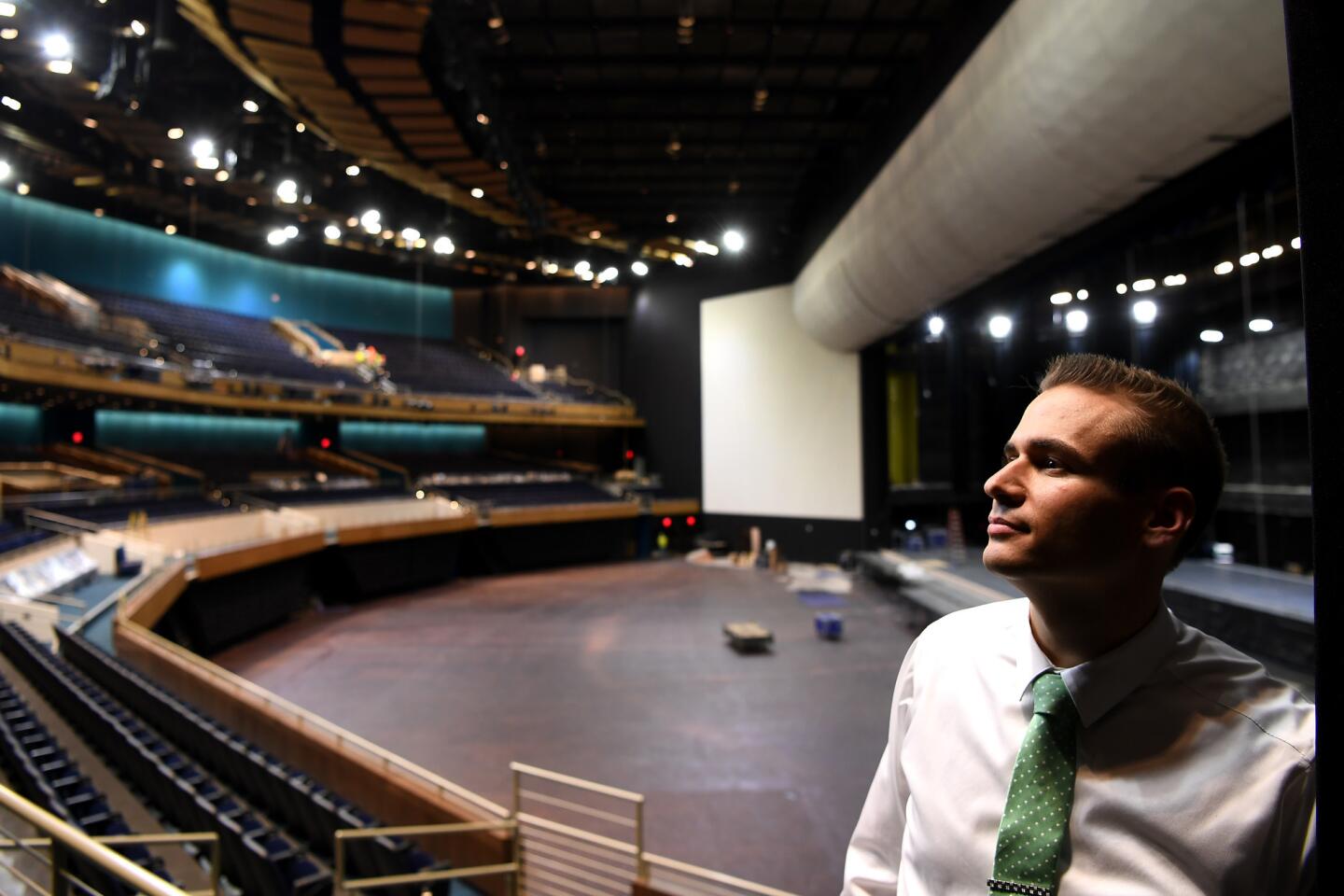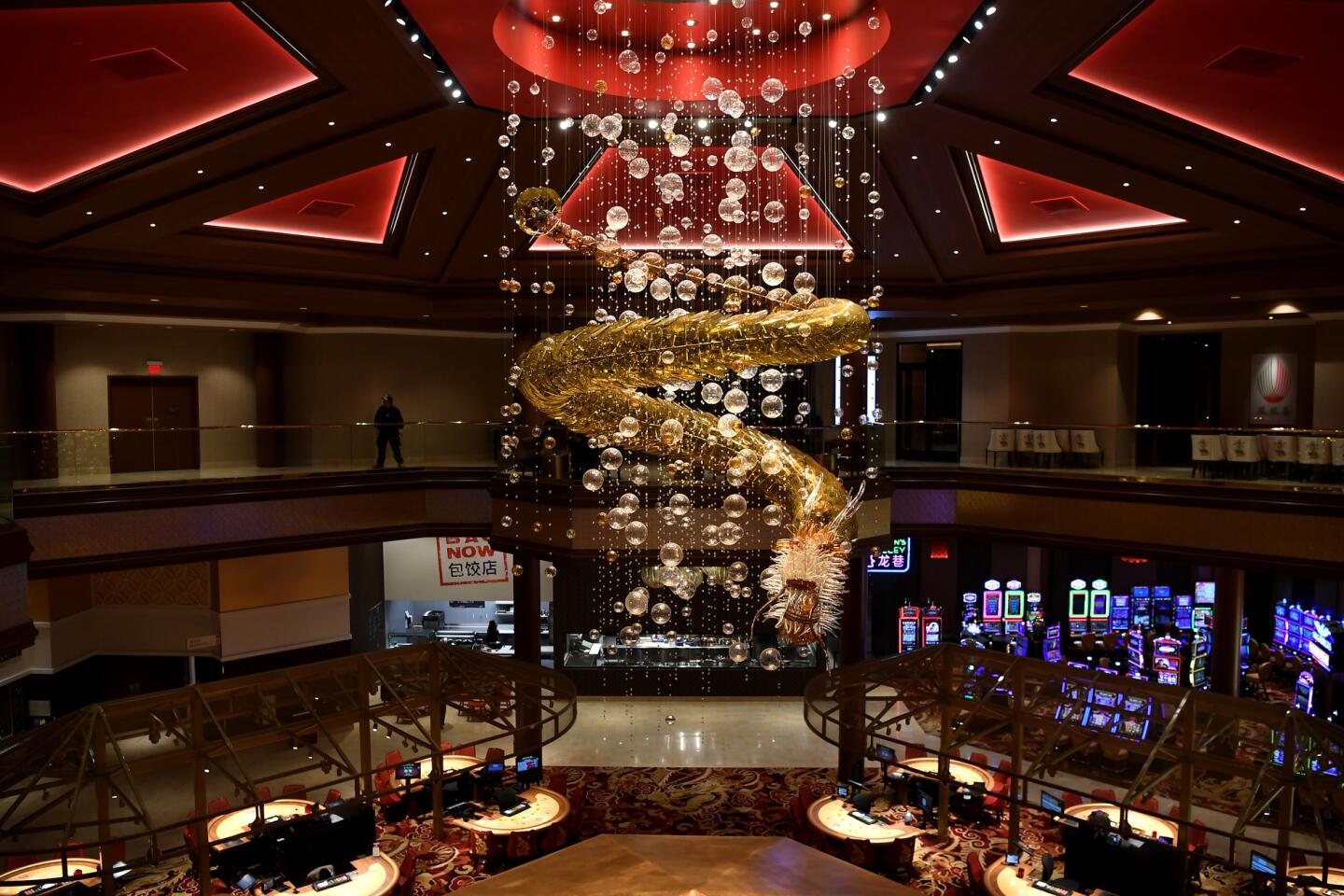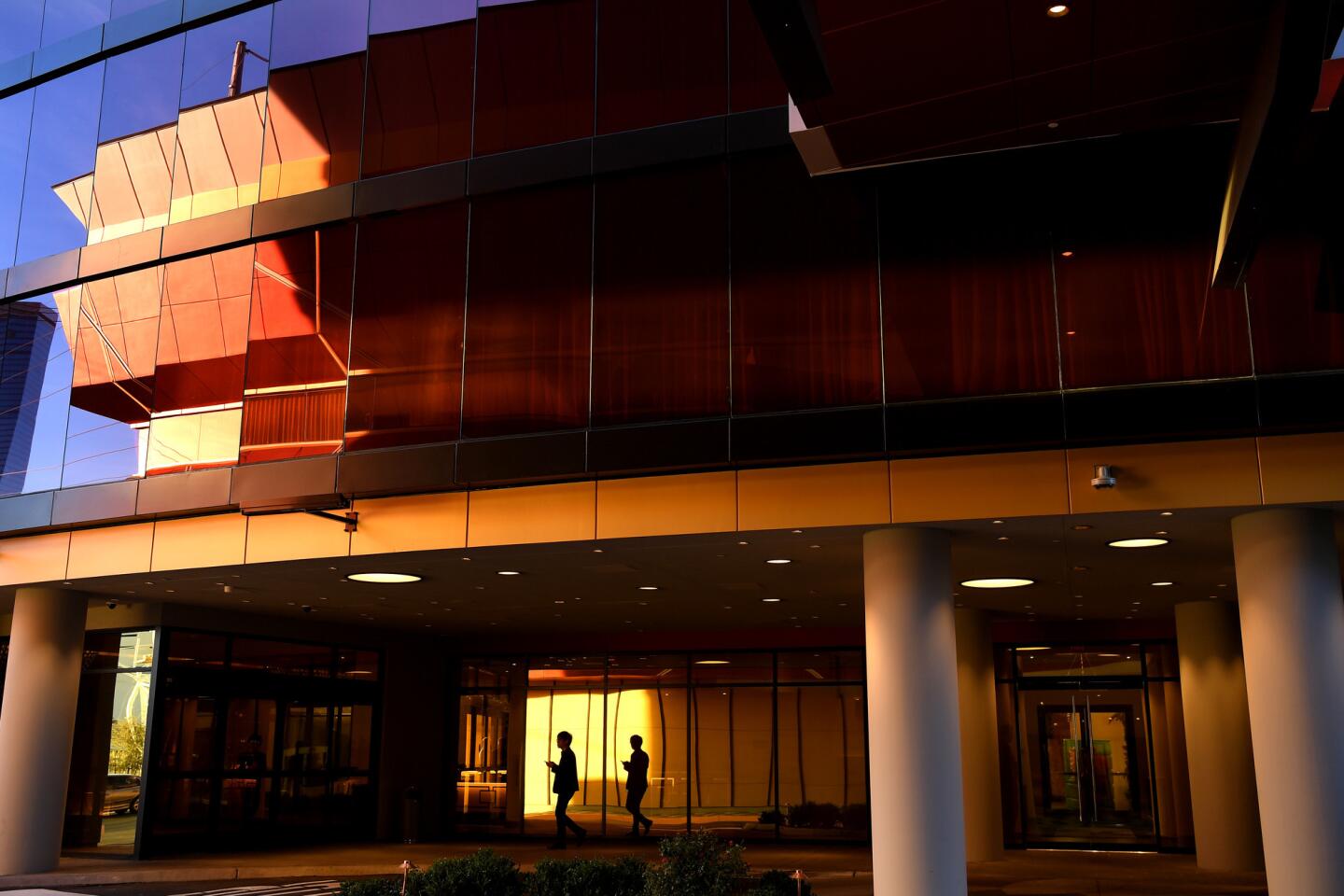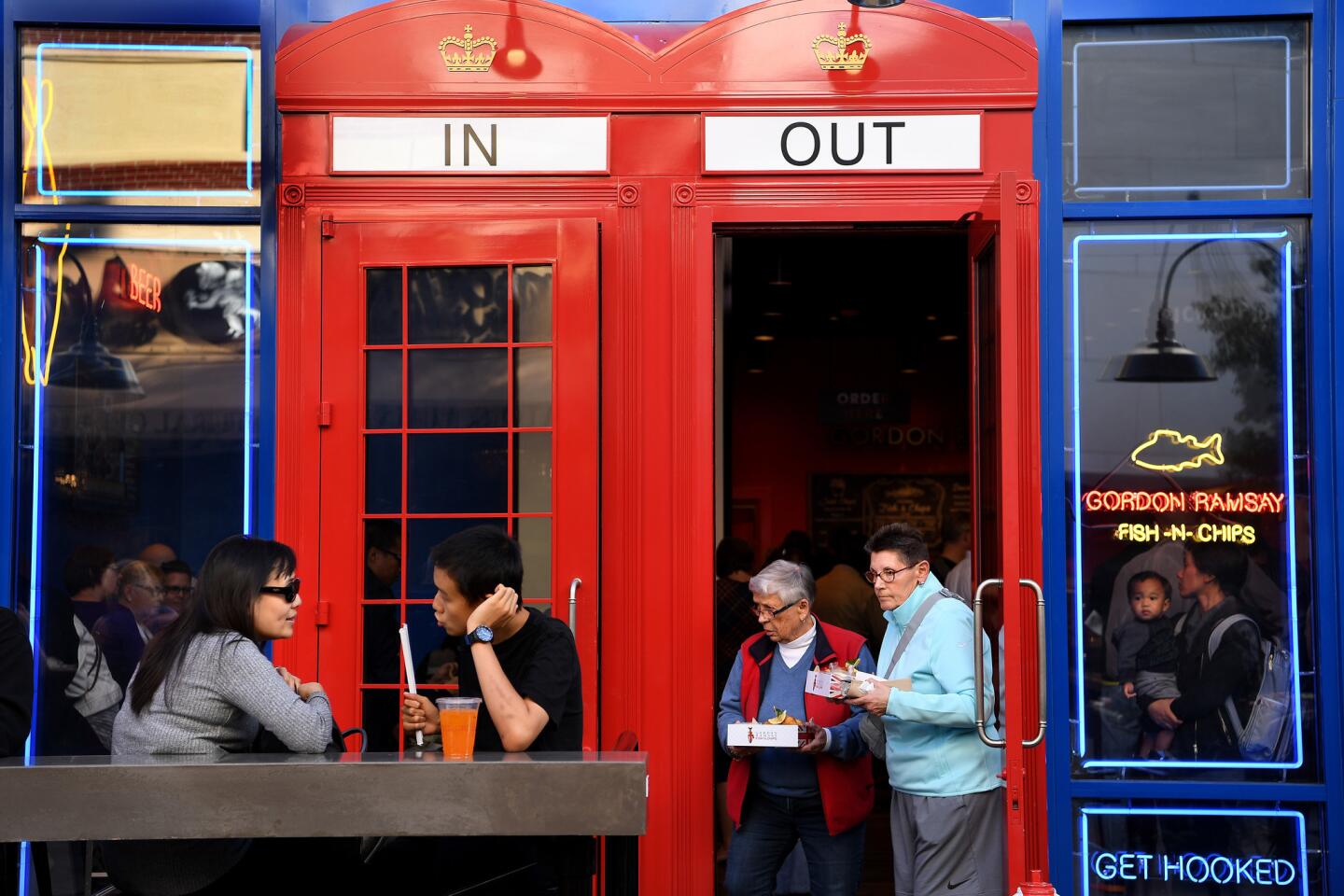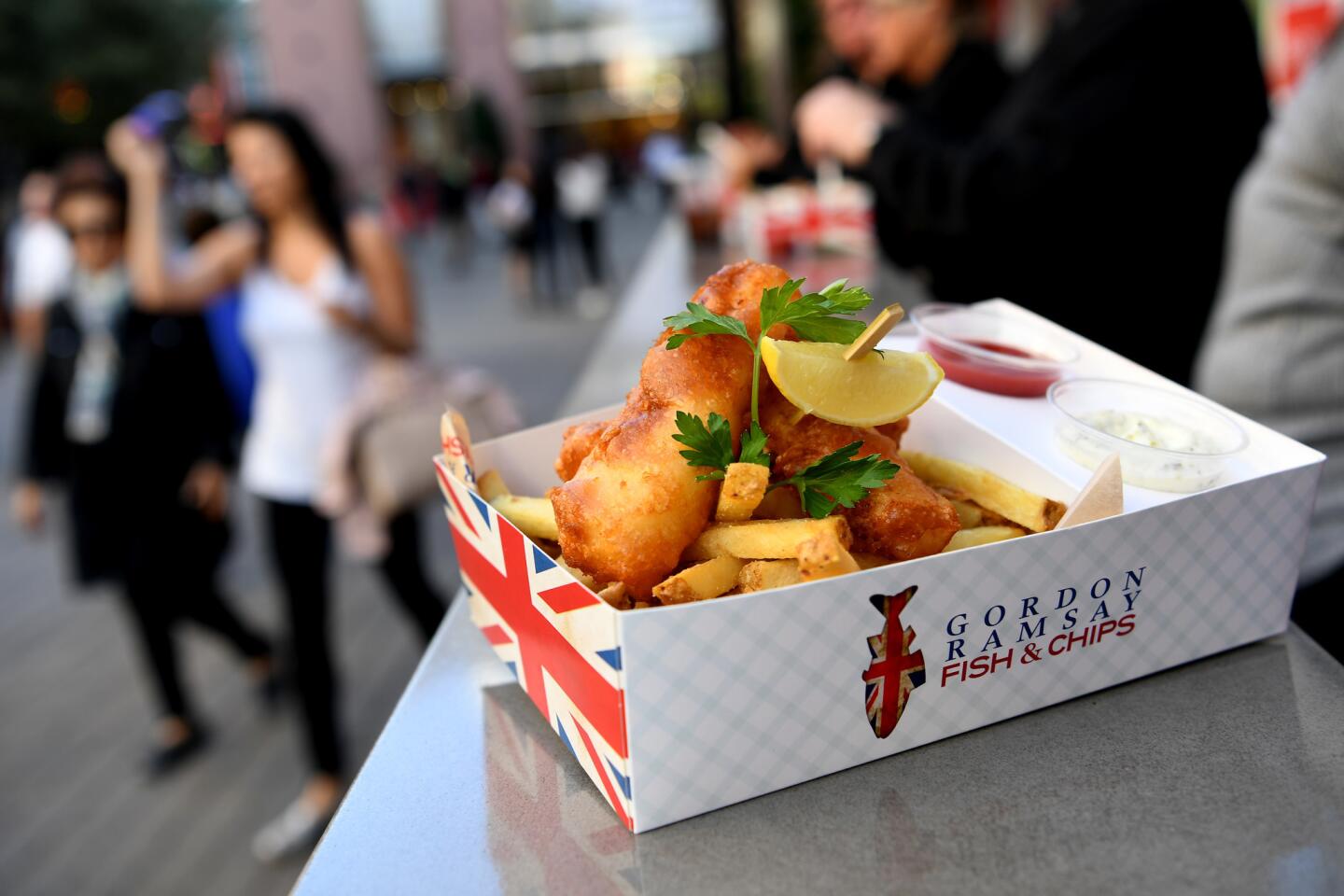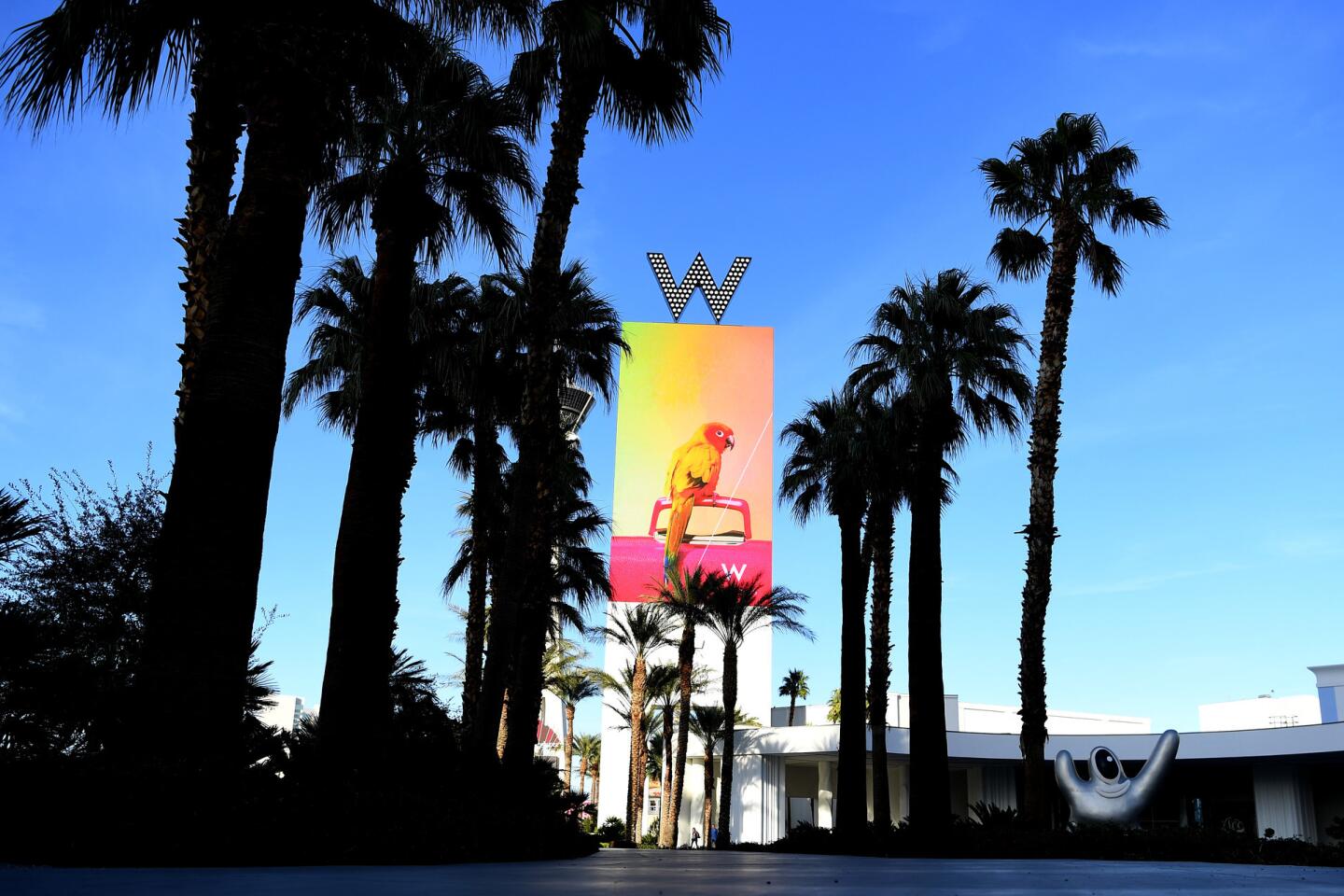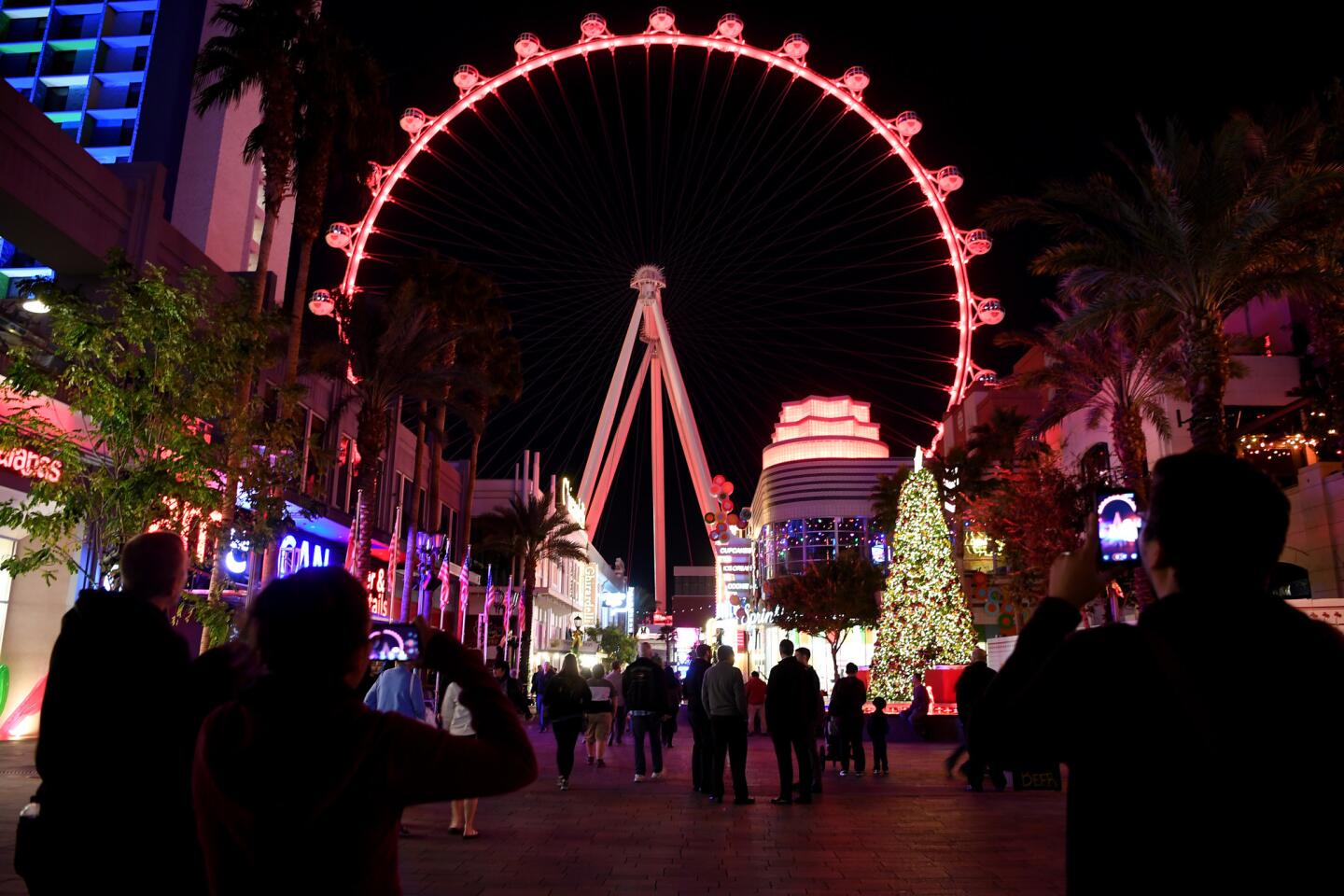Will 2017 will be the year of magical travel? With low airfares, a boffo new concept in hotels and bargains, signs point to yes
- Share via
2017 is practically begging you to take a trip. Airfares are down and gas prices are below what they were last year at this time.
Plus more than half of you are still not using all your vacation days, according to Bankrate.com, so the odds seem in your favor.
Of course, you would expect us to say that. But the next time you post to Instagram or send something by Dropbox, know that these ideas came to people while they were on vacation, according to Forbes.
So you want to be a gazillionaire? Take some time away. Besides the promise of riches you’ll accumulate when that vacation-born idea takes wing, here are 17 other things that may lure you to the lands of relaxation.
1. Hotel, hostel or home?
The concept for a new lodging brand called Jo&Joe may have you scratching your head at first. Is it for people who like hotels? Hostels? Who want all of the comforts of home without being there? Yes.
The lodgings, which AccorHotels hopes to introduce in 2017, are aimed at millennials. Or, as it says, the millennial-minded.
That explains why these accommodations will have spaces called the Playground (bars, restaurants, activities such as yoga) and Happy House (a kitchen/hangout area) and why its hoped-for clientele includes what it calls “love birds” (couples who want privacy), “solo socials” (looking for interesting, new experiential travel), “townsters” (people who live in the city and want to hang out at Jo&Joe) and “tribes” (several people traveling together — could be family, could be friends).
Where you sleep can be configured based on what kind of traveler you are because Jo&Joe is a kind of movable feast: Furniture on wheels means pieces you don’t need can be dispatched and what you do want can be rolled in.
It hasn’t said yet where its lodgings will be, although it does say it hopes for 50 of them by 2020. The uncertainty adds to the intrigue, but Paris wouldn’t be a way-out guess because Accor is based in France. Also think Europe; Accor’s media materials quote starting rates in euros (25 a night, or about $26). And how about L.A.? As the capital of the next big thing, we seem a natural fit.
2. Pay to stay won’t break you
Speaking of hotel prices, rates probably won’t increase much, according to American Express’ Global Business Travel Forecast for 2017. Unless you’re in California. Demand in the Golden State is “strong,” and if supply and demand rule — and they do — expect a bigger bill.
San Francisco, the report said, could see a 9% increase. You’ll probably also pay more in Seattle and Portland, Ore., less in Latin America.
3. Vegas finds new ways to vex
Thanks to yield management — the practice by which rates fluctuate depending on demand — you’ll pay what you’re going to pay for a Las Vegas hotel with little control over it.
Add to that something else over which you have little control: resort fees, which have climbed to as much as $35 a day at several Strip properties, resulting in wailing and gnashing of teeth.
Plus hotels have finally figured out that parking was an untapped cash cow, so you’ll pay for valet and self-parking, some underway, some to be added this year. Almost reminds me of bag fees.
4. Celebrating bag fees
The bag fee is turning 10 in 2017, and it’s time to celebrate, sort of. In 2007 passengers paid $464.28 million in baggage fees, according to the Bureau of Transportation Statistics. By 2015 that figure had increased to $3.8 billion, the bureau said.
There are ways to circumvent bag fees that are more sophisticated than pretending you didn’t know your bag was too big and feigning surprise when an agent offers free gate-check.
For instance, there are airline co-branded credit cards, which often give you a checked bag for free (although this requires you to fly the airline on your card). You can fly Southwest, which doesn’t charge for the first two bags. Or you can ship your stuff to your destination. Carry-ons that don’t exceed your airline’s dimension limitations work too.
However you cope with bag fees, one thing is certain: Even though airlines are newly profitable, it’s unlikely they will walk away from nearly $4 billion. Would you? And besides ...
5. Travelers benefit when airlines are profitable
In 2015, U.S. passenger airlines made $25.6 billion in profit after taxes, according to the Bureau of Transportation Statistics, about three times what they made in 2014.
It’s why you’re seeing new aircraft (an average of 66 new ones a year, according to an FAA report on the future of aviation, through 2036) and why you’ll see fewer of the old 747s and 757s, which are giving way to more fuel-efficient models the airlines now have money to buy.
6. But wait. There’s more.
The perks of airlines having money include food. When times are tight, airlines cut back on the niceties. In August 2008, Los Angeles Times wire stories reported, “United Airlines, struggling to curb losses from record fuel prices, will become the first U.S. carrier to stop serving free meals in the coach cabin of some overseas flights.” Continental (remember Continental?) stopped serving snacks in 2011, NBC News reported at the time, and saved $2.5 million a year.
United, American, Southwest and Delta all offered snacks in 2016. Unless things go south, you’ll still get a nibble in the new year.
Though it may not be a midair version of Providence (Jonathan Gold’s No. 1 L.A. restaurant pick in 2016), a Biscoff cookie/cracker or a stroopwafel beats chewing the seat back in front of you.
7. Don’t forget Wi-Fi

As though we could, even at 35,000 feet. But we’d like to forget some of the really lousy ground-to-air Wi-Fi we’ve used and sworn at, not by, in the last several years.
Expect better connectivity in 2017 as airlines switch to satellite systems, which are as much as 20 times faster than the old ways, according to the Dallas News.
8. Meeting the greed for speed
Airline profitability also may help us get through security faster. Partnering with the Transportation Security Administration, United, American and Delta are implementing automated bag screening that allows five bins (80% larger than the old) at a time. Faster and logistically smarter, it’s already in use at LAX’s United Terminal 7 and is coming to American and Delta in 2017. Money may not buy happiness but it contributes enormously to it.
9. So airfares will stay low?
Maybe. Keep your eye on the oil market. Do not yawn. The future price of your airline ticket depends on it.
A barrel of oil in December hovered around $51. That price has seesawed from almost $145 a barrel in July 2008 (almost $163 in today’s dollars) to $26.55 in January 2016.
But there is trouble on the horizon: OPEC has mandated a cut in production of more than 1 million barrels a day. It’s a slight reduction in the overall scheme, but no one has ever accused the oil market of stability.
About a month after the July 2008 spike in fuel prices an airline ticket to Washington, D.C., cost about $418 — about $469 in today’s dollars. In 2016 it was $344, according to the L.A. Times’ airfare chart.
10. From hate to imitate
As you’re thinking, “Gee, I’m flying practically for free in 2017,” remember that in 2008 add-ons were not quite as prevalent as they are now (bag fees, legroom, premium economy, meals, early boarding).
In 2017, look for more airline ticket-pricing models akin to those used by Spirit. Yes, travelers hate Spirit, studies show. But leisure travelers don’t hate saving money. So look to United, Delta and American for their version of “bare fares” that let you choose whether you want the niceties that keep airline travel from being like a ride on a Beijing subway.
11. You can make yourself uncomfortable internationally too
Tap Portugal, which privatized in 2016, was recently touting a $389 round-trip fare from L.A. to Madrid for late March (partly a code-share with JetBlue, and by the time you read this, that fare may be gone). Its seats in the back of the plane don’t recline, and the legroom is a snug 28 inches. Whether you choose to buy your way out of legroom hell is up to you.
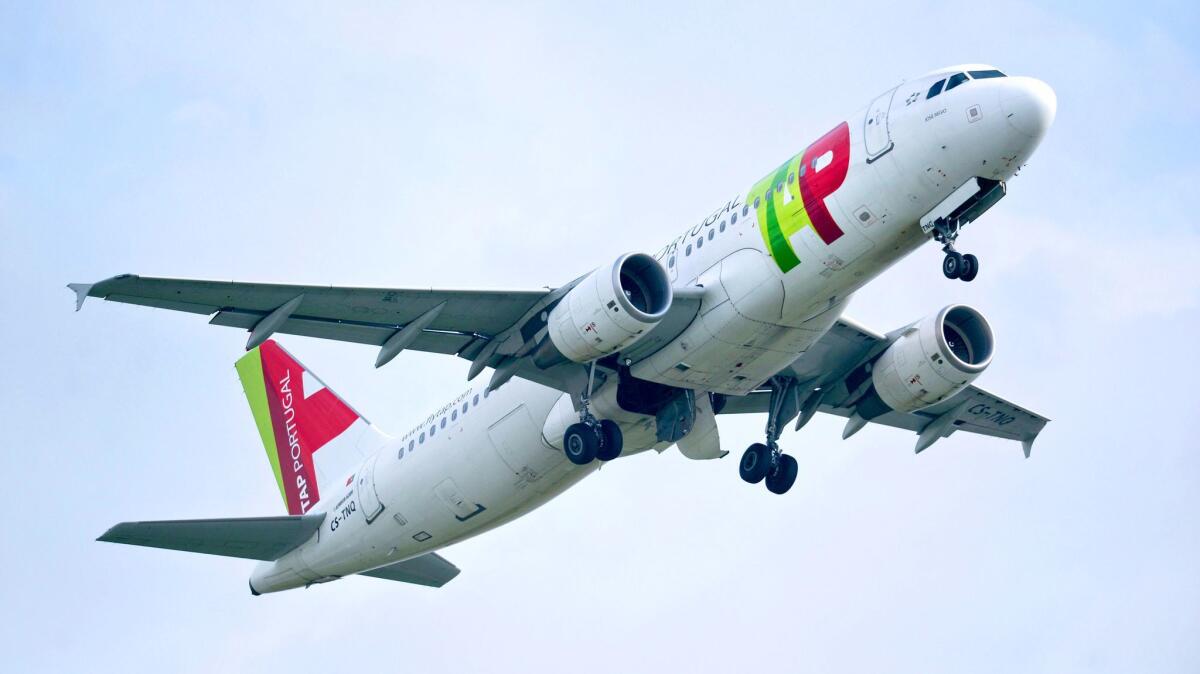
12. Competition helps
And a lot of competition helps a lot. We’ve seen the effect that bargain carriers Norwegian and Wow have had on fares to Europe. The same is happening in Asia, Travel Weekly says, to which we have seen some sub-$600 round-trip fares from LAX. The bargain landscape includes such carriers as Peach, AirAsia, Lion and more, which will keep downward pressure on prices, with an assist from cheaper oil.
13. Calling all fliers
The talk isn’t just about cheap fares. The talk is about talk. You have until Feb. 13 to comment on a proposed Department of Transportation rule (DOT-OST-2014-0002) about cellphone use aboard planes — but it’s not what you think, the DOT says.
Cellphone calls are currently outlawed, but there is some move to relax those rules and clarify others. The DOT action would require airlines to warn passengers that voice calls are permitted onboard. You can comment (www.lat.ms/dotphones) until that date. By late December, more than 3,000 people had added their (electronic) voices to the discussion. Most people thought midair silence was golden, including one commenter who said, “People are rude enough as it is.”
14. Civility may be the antidote
What’s better than a place where peace suffuses the national thought process? Peace that comes at a reduced price. We’re speaking, of course, of Canada, which not only celebrates its 150th anniversary in 2017 but whose currency also is kitten-weak against the U.S. dollar, making it a bargain destination.
Toward the end of 2016, $1 U.S. was buying you $1.34 Canadian. That means a room at the Fairmont Empress in Victoria that was $249 Canadian a night in late December costs $186 U.S. a night.

Vancouver, Canada
For that matter, keep an eye on foreign currencies. The dollar may reach parity with the euro in 2017 and has gained considerably against the pound since the Brexit vote. Translation: cheaper European vacations.
15. Road trip!
In the U.S. a dollar still buys a dollar, and for many people also buys peace of mind in light of recent terror attacks abroad. A December TripAdvisor survey said that 58% of Americans stayed in the U.S. on their last trip, which suggests … road trip!
Gas prices have begun creeping up in the last three weeks, but they’re still below 2013, which means you’ll have plenty of company on the road.
The holiday travel period that ends Monday saw nearly 94 million people driving, up 1.5% from last year, according to AAA.
That’s almost a third of our population in transit. Expect more of the same for the rest of 2017 if prices remain low.
But remember, a 10% change in gas prices doesn’t necessarily make a road trip unaffordable.
If your car gets 36 mpg and you drive to Phoenix, the 744-mile round trip would cost you a little more than $53 if you buy gas only in California at its recent $2.66 a gallon. In 2015, prices were about $2.93 a gallon around the same time, which means your bill then was about $5 more.
16. And for the connoisseur ...
California’s approval of the use of recreational marijuana for adults 21 and older most likely will create a new industry, not unlike what happened in Colorado in 2012 after the state OKd use.
But the California industry will be different, said Danny Schaefer, chief executive of Pioneer Industries, which includes My420Tours.com, offering cannabis-related travel.
Schaefer thinks the “curve” of pot travel begins with the thrill of being able to imbibe legally but soon moves to the “sommelier” experience: finding the finer things in life with help, especially if you’re already familiar with product.
None of this will happen overnight, and there will be opposition to growing from those who are doing it illegally and those who believe pot cultivation is too water- and power-intensive, Schaefer said.
But once cannabis travel gets its legs under it, expect the Napa of pot to emerge.
Humboldt County, anyone?
17. Renting by the hour
That doesn’t sound nice, but it is nice. Hotels, which rarely run completely full, are always looking for new sources of revenue, and here’s one way that’s growing in popularity: day rooms.
These day-use rooms give weary travelers a chance to clean up, nap or work, said Jeremie Catez, who, with Sebastien Trouillet and Gabriel Munch Andersen, founded Beewake.com.
If you’re going on a cruise, for instance, and you’ve taken a red-eye to your port, you could rent a room, get refreshed and relaxed and make it to the port feeling like a million bucks. It costs less than paying for a hotel room for a night you’re not going to use.
Look for Beewake and competitors HotelsByDay.com, Dayuse.com and others to take off in port cities, of course, but really anywhere you just need to rest, albeit briefly, for the next part of your journey.
ALSO
A weekend in Hemet offers more than just another fish story
These three Utah ski resorts aren’t just for locals anymore. Here’s why they will intrigue you
New hotels, hot restaurants, a singing superstar — Vegas proves again it just never sits still
Sign up for The Wild
We’ll help you find the best places to hike, bike and run, as well as the perfect silent spots for meditation and yoga.
You may occasionally receive promotional content from the Los Angeles Times.


